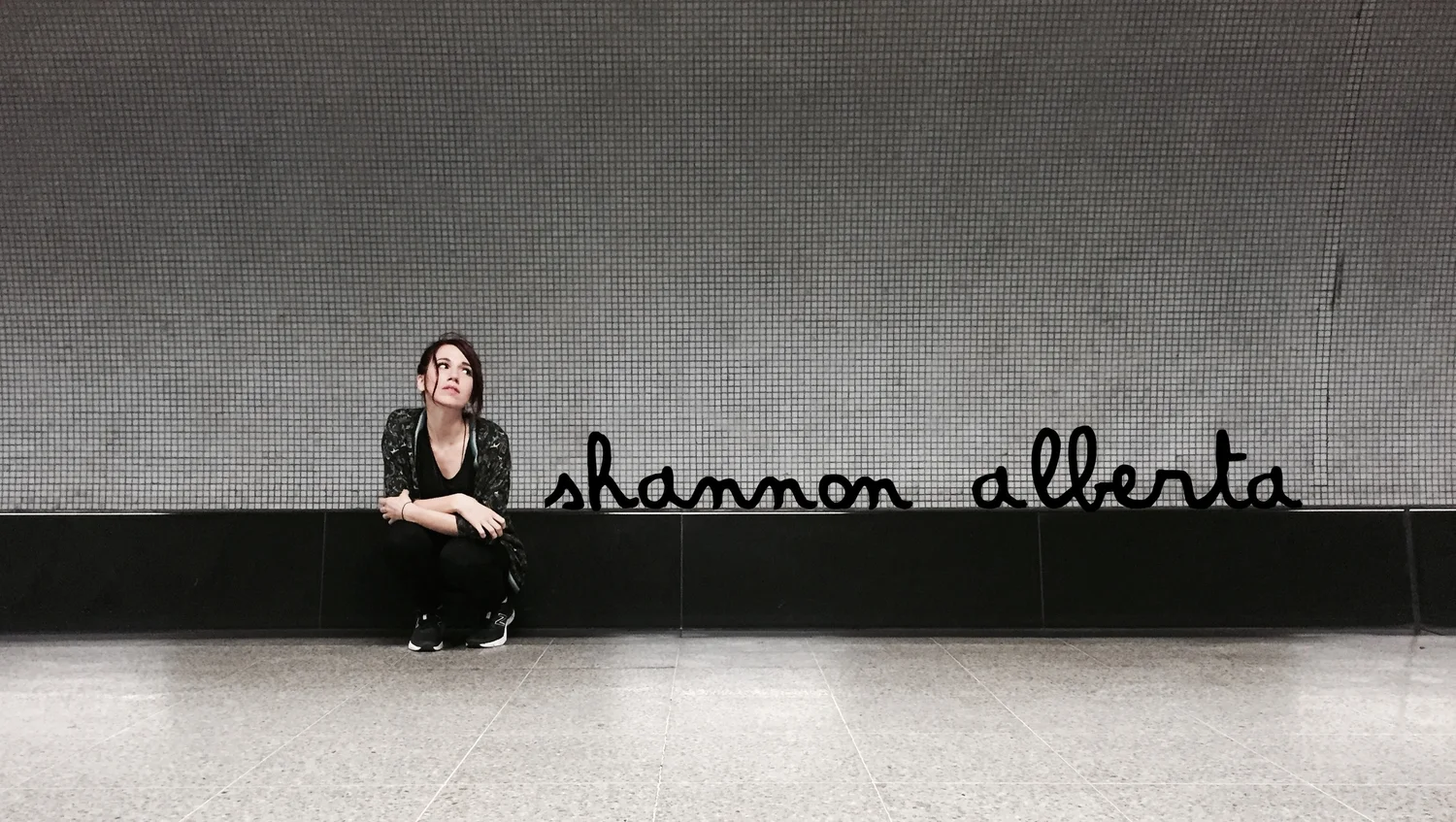My Oma, Adelheid (Heidi) Margarethe Tomaszewski, passed away yesterday during her daily afternoon nap. She was not someone that you'd call a pushover in any sense of the word, but much of that can be attributed to the hard shell she built around herself in order to survive. She lived in Germany during the Second World War. After the radios were confiscated by the nazis, her and her mother would take turns each night pulling an old radio out from underneath the floorboards, dusting it off and listening to the news on the BBC, full of horror and fright. When the war ended and my Opa (a prisoner of war) was released, they married quickly, had my Dad, and soon found themselves on Pier 21 in Halifax. New Canadians, with only $10 dollars to their names, they got on the train that would eventually lead them home, to Alberta, a place the three of them would come to love fiercely (hence my namesake). While on the train between Winnipeg and Calgary, my Dad took his first steps.
Oma smoked like a chimney for a lot of her life, but she "didn't inhale" so apparently it didn't count. But she still quit all the same and loathed that my Dad smoked. For as long as I had known her, she had been heavy. Walking in the mall once, someone called her fat and I remember she turned to me and said, "So long as you like yourself, that's all that matters." Her weight didn't ever stop her from wearing bathing suits or dancing when she and my Opa went to Cuba, which they did all the time. Due to an iodine deficiency during the war, she had developed a goitre on her neck that was quite large. Doctors were always pressing her to have it removed, but because the surgery came with the small risk of her losing her ability to speak, she always said no. "If it's not bothering me, why should it bother them?" she'd say when people would stare. Oma is one of the only people I've ever known who really seemed to like herself, through and through.
She was also the only person growing up who always encouraged my writing, which is still so strange to me, because she never stopped working a 9-5 job for a day in her life. You would think that to someone like her, the arts were a frivolous pursuit, something that was fine to enjoy but not to build a whole life around. But that wasn't the case. When we'd go out to feed the ducks, as soon as I'd come home she'd encourage me to write a story about it. She loved telling me how many relatives of mine were painters, actors, and musicians. I never heard about the lawyers or doctors or engineers. Only the artists. Maybe she knew that wasn't what I needed to hear? There was always music in the house. In fact, it was not unusual for my Opa to wake me up by playing the accordion. I was playing cribbage as soon as I could add numbers, and it was expected that I contribute to conversations on politics as soon as I was old enough to have a sense of the world around me. So long as I didn't contribute too much. You'd think as a couple of lifelong lefties, we wouldn't have fought about much, instead focusing on the big picture similarities we share. You'd be wrong.
What I'm thankful for:
- That I spent time with her this summer, putting up all the pictures in her room at the care facility she had to move to. I know whose faces smiled back at her as she laid down for her last nap.
- That I wrote her a poem this Christmas, instead of sending her a plant. A plant can't say 'I love you, you tough old thing'.
- That I found her old apartment in Berlin this summer, and brought back photos and videos to show her. The facade had changed so much she couldn't recognize it, but you should have seen her face when I showed her the courtyard.
- That I brought back so many little things of hers with me when Dad and I packed up her house. Every night I brush my hair with her brush. We dry our hands on her tea towels ("They don't make them like that here," she'd say.) A coffee mug. Mensch ärgere dich nicht (The best German board game ever.) A glass jar for earrings. A big old German cookie tin that still makes me drool every time I see it. (It's where all the goodies were kept growing up.) I gave some of her costume jewellery to my best friend. I'm so thankful I'll still "see" her everywhere.
- That she passed away in her sleep, since she told me she dreams of Opa most nights. She had the same dream all the time: that they were young again, him in a blue suit, and they're back dancing at the Austrian Club that overlooks the Deerfoot highway.
But why the Austrian Club and not the German Club?
"Because the German Club's food is just crap," she told me when I asked.
Ich liebe dich, Oma.















